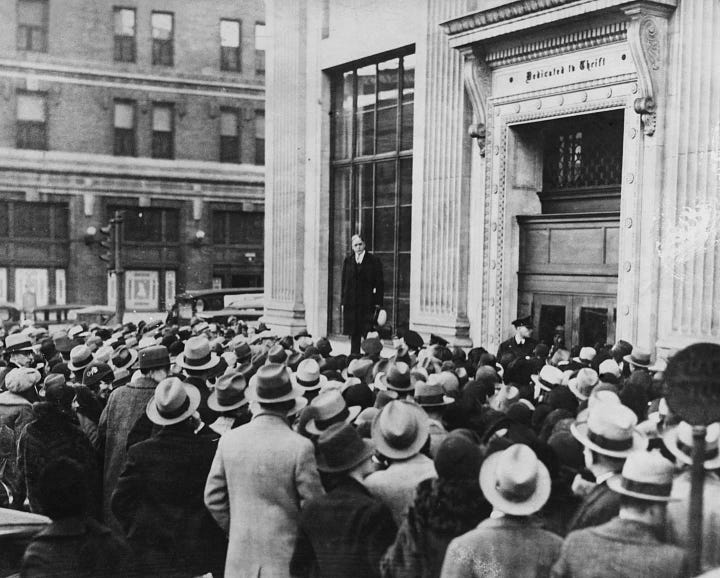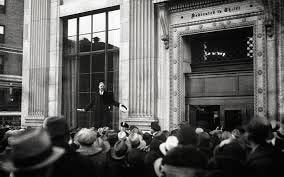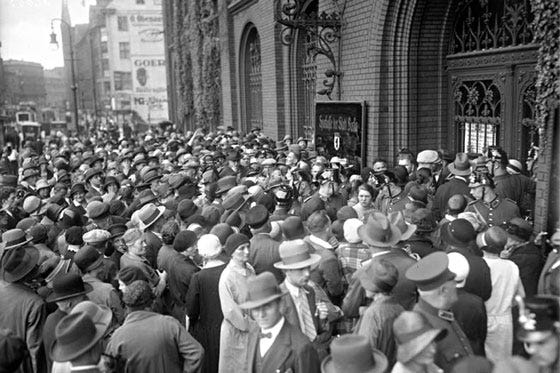Exit, Voice, Loyalty and Bitcoin
Why I'm Opting Out of the Fiat System
This morning I tried to move money from one account I own to another in order to have enough funds to clear a check I’d just written.
First problem: a limit on how much I could move at one time. This is my money, in my accounts, but I can’t move it freely. Ok, call the bank, increase the limit. Spend twenty minutes on hold. Finally get through. Check.
Problem number two: I move the funds and the transaction is pending. Well, I need this check to clear now, so let me call the banks because I can’t wait until Monday for this. One bank says their ACH is sent and with the Fed. The other says the ACH is with the Fed and not going to clear until they release it. Both banks are helpless. The money is somewhere in the ether, and no one can tell me when it will arrive.
Then, a second example. Ironically also today, which is why I felt called to write this out.
I have an honest contractor who, like many, is living day by day and working hard to get by. His truck broke down, and he needs an advance to get it fixed this weekend. It’s Friday. Banks close in just a couple of hours. He wants to know if there’s any chance I can get him money by the end of the day.
Same exact problem. We even tried Zelle, and since we’re all newbies on there, it’s not authorizing us to send today because our accounts “need to be reviewed.” We ended up writing a check and giving it to him in person. In 2025, the most advanced payment technology I had access to was on paper.
What is the Fed doing with my money right now, and why is it going to take them 2-3 business days to release it from one bank to another via ACH? It’s not like they’re physically moving cash across the country. It’s all digital. It’s literally just updating a number in a database.
Imagine every single ACH transaction that this is happening with right now. Millions of transactions, every single day, sitting in limbo for 2-3 days. Then imagine the interest that the Fed collects just by bottlenecking that transfer for 2-3 days on each of those transactions. It’s a tax you never agreed to pay, extracted through friction you never consented to.
If we’d been sending value over Bitcoin, it would have cleared in 10 minutes with no intermediaries with broken incentives in between. No phone calls. No holds. No permission required. My contractor would have had his money, and his truck would be getting fixed tomorrow morning. Instead, he is going to go deposit that check, and they’re probably still going to put a couple-day hold on it.
Every time I need to deal with money in the fiat system, I am reminded that the money I have in that system is not mine, and that I am participating in a game of Monopoly. The bank could run out of its fake bills any time, and the only thing it can do then is make more. Every time they do this, it steals buying power from every hard-working individual who saves money earned for their work in USD.
In his most famous book written in 1970, economist Albert Hirschman proposed that when dealing within a broken system, you have three options: use your voice and speak up, be loyal and trust in the system, or exit.
Hirschman was writing about organizations and markets, but his framework applies perfectly to monetary systems.
Voice means working within the system to fix it by lobbying for reform, voting for different policies or trying to change the rules. In the case of the monetary system of the United States, I have no voice. The Federal Reserve is not accountable to me. Congress is captured by banking interests. The system is designed to be opaque, complex, and resistant to change. Even if millions of people wanted to reform it, the political and regulatory barriers are insurmountable. Voice doesn’t work when the system is designed to ignore you.
Loyalty means accepting the system as it is, trusting that it has your best interests at heart, and believing that any problems will eventually work themselves out. But I have no reason to be loyal. The incentives are clear: the system benefits from my participation, not from my prosperity. Every delay, every fee, every point of inflation is a transfer of wealth from me to institutions that already have too much power. Loyalty to a system actively working against you is not virtue, it’s delusion.
That leaves exit.




Exit means opting out. Finding an alternative. Building parallel systems that don’t require permission from the incumbents.
I remember visiting a close friend’s brother up in northern Maine a few years ago to check out his oyster farm. When I asked him what got him into Bitcoin so early, he said something that stuck with me: he recognized that he was needing to work harder and harder just to stay in the same place. So he started looking for answers, first, why that was the case financially, and second, how he could escape that hamster wheel.
That’s when he educated himself on monetary policy, looked for things he could do to hedge against the current system, and eventually found Bitcoin. He’d tell you it’s one of the best decisions he ever made.
He chose exit before most people even understood there was a choice.
And so I choose to exit.
Bitcoin is the exit. It’s permissionless money that settles in minutes, not days. It’s money that no one can inflate, no one can censor, and no one can hold hostage while they extract rent. It’s money that’s actually mine.
That is why I buy Bitcoin. Every. Single. Day.
Stay humble. Stack sats.
-Benjamin Anderson
Nostr: ben@buildtall.com

